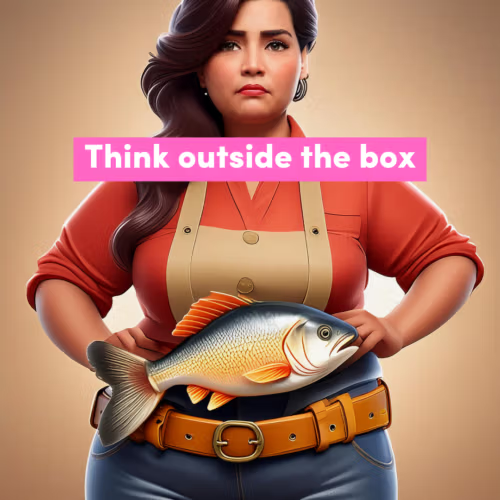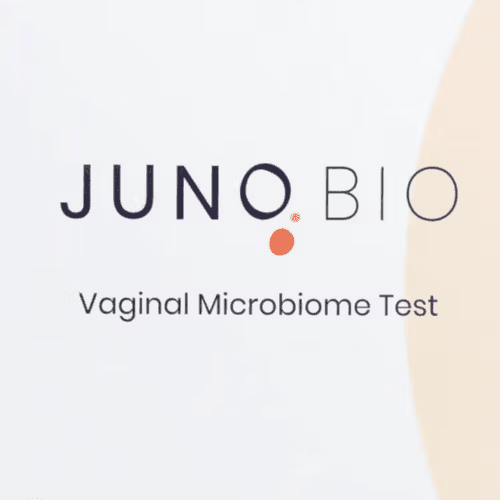There’s an area of our bodies that we can try to ignore for a lifetime but do so at your peril: unexpected, undetected food intolerances.
A food intolerance isn’t an allergy – that’s different. Food intolerances are due to the ingestion of certain chemicals in food. We hit the threshold and then see symptoms, minutes, hours or days later.
We’ll usually see no correlation between what we’ve eaten and symptoms unless you know what you’re looking for. When this is depression, anxiety, or IBS, it can be debilitating.
Food chemicals can be both natural and artificial. For many of us, a piece of chocolate cake may be better for us than a piece of fruit. We get preoccupied with ‘healthy’ food, not realising that it could be making us really sick. We don’t think vegetables can make us unwell, so we point our fingers at something else.
Food intolerances run in families and can affect the most unexpected parts of our bodies and lives, including resulting in extremes like suicidal ideation and depression, and of course, vulvovaginal infections, hormonal issues and bladder disturbances, just to name a few in children and adults.
You’re likely on your own with this (but you have community, don’t worry!)
The mechanisms of food chemical intolerances are not well studied or understood, and may not be accepted by many healthcare practitioners. You will largely be on your own when it comes to the discovery and elimination of these foods and food chemicals from your diet.
It’s worth every ounce of energy you spend on it, at the very least to exclude it from the cause of your issues.
There are tons of groups online about this, but we are keeping it simple by only recommending Sue Dengate’s resources.
This article is not about the broader problems that food intolerances cause, but be sure they exist, and if you suspect you are suffering, it won’t just be your vagina or hormones that are acting up.
Dealing with food intolerances can be life-changing. Don’t ignore this as a possible route if you have ongoing hormonal, reproductive or vulvovaginal issues.
The biggest culprits affecting the menstrual cycle are additives (colours, flavours, preservatives), salicylates, and amines. The list of problem food chemicals is long, and you’ll need to follow an appropriate elimination diet to see where you’re at.
Many families benefit from this elimination diet, so if you have kids showing signs of issues, it’s even more worthwhile.
Recommended elimination diet
The Royal Prince Alfred Hospital (RPAH) has a great elimination protocol with supportive books. We also love Sue Dengate’s Fed Up book series and website for easy reading, accessible food intolerance information and a doable elimination diet. The diets are the same for Fed Up and RPAH.
The point of an elimination diet for food intolerances
An elimination diet is a short-term diagnostic diet that removes all potential natural and added food chemical triggers (salicylates, amines, glutamates and food additives) to see if food chemicals are contributing to your symptoms.
You then identify which of these food chemicals trigger symptoms, using systematic food challenges of carefully selected foods that contain just one culprit chemical.
Then you figure out long-term management of the diet. Based on the challenge results, a diet emerges and you can gradually identify tolerances to each food chemical to avoid recurrence of symptoms.
Don’t know where to start? Check out Sue’s introduction which lays out the basics.
Sue Dengate invented the FAILSAFE diet. FAILSAFE stands for Free of Additives, Low in Salicylates, Amines and Flavour Enhancers. The failsafe diet was originally designed to treat ADHD children but has proven useful for a wide range of conditions. It’s a straightforward elimination diet which is designed for kids, so appeals to everyone in its simplicity.
We also recommend the Royal Prince Albert Hospital (RPAH) elimination diet, which is basically the same thing but if you need the official hospital endorsement, this is a good place to start.
Food intolerances can result in:
- Premenstrual syndrome (PMS) and premenstrual dysphoric disorder (PMDD)
- Hormone irregularities
- Irregular, painful or long periods
- Bladder and urinary problems
- Vulvovaginal infections and irritation
- Digestive upsets
- Irritable bowel syndrome (IBS) – diarrhoea, constipation, gas, bloating, pains
- Headaches, migraines, sleep problems
- Rashes, skin problems
- Behaviour and mood alterations
- And the list goes on – see Sue’s site for more information on the specifics
Food intolerances and the menstrual cycle
Premenstrual syndrome (PMS) and premenstrual dysphoric disorder (PMDD)
Premenstrual symptoms that may be caused by food intolerances include:
- Irritability
- Insomnia
- Rage/temper outbursts
- Foggy brain
- Food cravings
- Bloating
- Anxiety
- Mood swings
- Headaches/migraines
- Sore, full breasts
Periods and food intolerances
When you’re suffering from food intolerances, periods can be more painful or cause you to feel sick. Periods may also be irregular, and bleeding may be prolonged or scant. Clots may be more frequent.
The impact of food intolerances on perimenopause
Perimenopause can come with some uncomfortable symptoms, including hot flushes/flashes, insomnia, restless legs, irritability and fatigue.
Fat in the diet can contribute to unpleasant perimenopausal symptoms, since the more fat in the diet, the more circulating oestrogens. While fat is not considered something you can be intolerant to in the traditional sense, trialling a very low fat (VLF) diet may provide some surprising benefits.
But, not low carb! You need carbohydrates to make hormones like progesterone, which drop off during perimenopause.
Food intolerances during pregnancy
Morning sickness
Did you know that eight societies do not report morning sickness? In a study of 30 traditional societies, we’ve discovered that morning sickness is not a given, not a universal symptom of pregnancy, but a condition potentially linked to diet.
Foods that can cause morning sickness in some people include amines, lactose and salicylates.
Food intolerance predictions in offspring
There may be a connection between what someone eats during pregnancy and a child’s intolerances. We need more research on this as the links are unclear.
Post-natal depression and diet changes
Diet changes after a baby can result in unexpected mood changes that may masquerade as post-natal depression. There can be unexpected ingredients in supplements, foods and drinks that can kick off mood problems, including depression, helplessness or anger.
Infertility – IBS, gluten, what else?
Gluten intolerance is known to affect male and female infertility; however, there are likely other associations with food intolerances that aren’t as well observed. Fertility issues can appear in various ways, including an inability to conceive and multiple miscarriages.
If there are irritable bowel symptoms or unexplained infertility, consider coeliac disease testing and an elimination diet.
Amine sensitivity during pregnancy
Due to a hefty increase in diamine oxidase (DAO) during pregnancy, those with amine sensitivities (including histamine intolerance) may feel much better during pregnancy. Diamine oxidase detoxifies amines from the body, such as histamine.
Urinary system and food intolerances
Urinary tract infections, painful bladder syndrome, cystitis, interstitial cystitis
Salicylates are in the same family as aspirin, and intolerance can lead to kidney damage that looks like abuse of analgesics (painkillers like aspirin). Salicylate intolerance can lead to repeated urinary tract infections and cystitis.
Urinary incontinence, urgency, and food intolerances
Salicylates and preservatives are common causes of urinary incontinence during the day and bladder problems such as urinary urgency.
Milk (dairy), artificial colours and amines may also contribute to these urinary tract symptoms. These symptoms can occur at any age but will likely worsen over time as urinary tissue becomes thinner and weaker.
Vulvovaginal infections and their relationship with food
Yeast infections and thrush and salicylates
Salicylates are the most common cause of yeast overgrowth, which leads to vulvovaginal yeast infections.
Many vitamins, perfumes, and so on may contain unexpected salicylates, so if you’re suffering frequent or ongoing yeast problems, going on an elimination regime that includes non-food items may help.
Vulvovaginal pain, irritation, rashes, rawness
Vulvodynia, painful vagina, painful sex and salicylates
Salicylates are one of the most common food chemicals that cause vulvodynia, however amines, additives and dairy are also culprits. Oxalates are also a problem for many.
Vaginal irritation with no known cause can occur in kids frequently, with foods or products that may seem minor and unrelated, such as lip balm.
How to get help for suspected food intolerances
Book with a My Vagina specialist practitioner for support, or find a qualified, experienced nutritionist, naturopath, functional medicine practitioner or another practitioner who clearly specialises in this area of health.
References
- Parker G, Watkins T, Treatment-resistant depression: when antidepressant drug intolerance may indicate food intolerance, Aust N Z J Psychiatry 2002:36(2):263-5.
- Pellicano R et al. Women and celiac disease: association with unexplained infertility Minerva Med. 2007;98(3):217-9.
- Hodge L, Swain A, Faulkner-Hogg K. Food allergy and intolerance. Aust Fam Physician. 2009;38(9):705-7.
- Koutsogeorgopoulou L and others Immunological aspects of the common food colorants, amaranth and tartrazine.Vet Hum Toxicol. 1998;40(1):1-4.
- Wajner M and others Inhibition of mitogen-activated proliferation of human peripheral lymphocytes in vitro by propionic acid.Clin Sci (Lond). 1999;96(1):99-103.
- Hansen WH and others Chronic toxicity of two food colors, brilliant blue FCF and indigotine, Toxicol Appl Pharmacol. 1966;8(1):29-36.
The most comprehensive vaginal microbiome test you can take at home, brought to you by world-leading vaginal microbiome scientists at Juno Bio.
Unique, comprehensive BV, AV and 'mystery bad vag' treatment guide, one-of-a-kind system, with effective, innovative treatments.
Promote and support a protective vaginal microbiome with tailored probiotic species.





